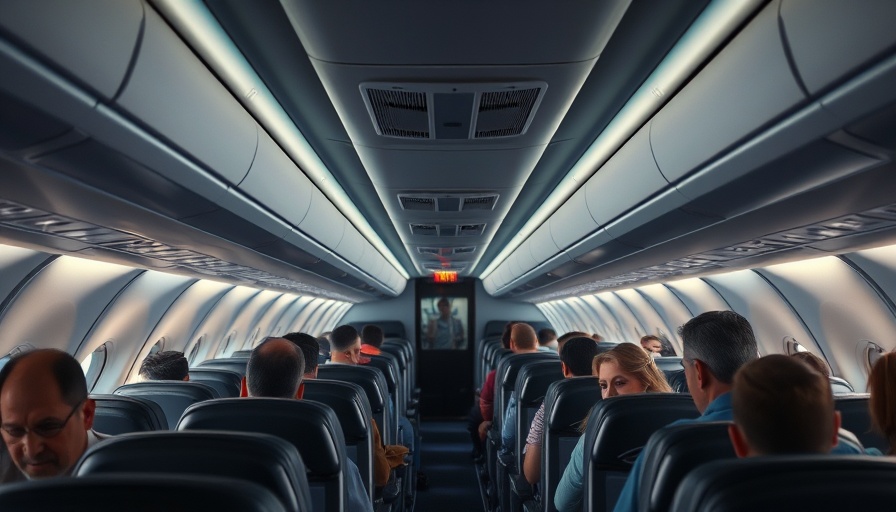
Why Are Airlines Being Sued for 'Windowless' Seats?
In a surprising turn of events, Delta Air Lines and United Airlines are facing proposed class-action lawsuits from disgruntled passengers who were promised window seats but found themselves stuck next to blank wall sections in the aircraft. This unexpected twist raises critical questions about transparency in airline practices and consumer rights. The lawsuits, filed in federal courts in San Francisco and Brooklyn, are calling for damages alleging that over one million passengers have been misled during the booking process. It highlights a broader issue of accountability and ethical business practices in the airline industry.
Understanding the Claims: What Do Passengers Want?
The crux of the lawsuits centers on passengers who believed they were purchasing a traditional window seat—an option often synonymous with comfort and scenic views. Many travelers pay a premium for these seats to alleviate fears of flying or to keep children entertained. The complaints explicitly mention that Delta and United do not adequately inform customers about the lack of windows in these seats, a stark contrast to competitors like Alaska Airlines and American Airlines that do disclose such information during the booking process.
The Impact of 'Windowless' Seats on Passenger Experience
Imagine looking forward to watching the clouds and landscapes swirl beneath you, only to be greeted by a blank wall. Passengers argue that had they known these seats were devoid of windows, they would have reconsidered their selections or refused to pay the additional fees. This situation not only contributes to dissatisfaction during flights but also raises the question: what responsibilities do airlines have to accurately represent their seating options?
A Broader Look: Is This Misleading Practice Common?
While these lawsuits may be unprecedented on the public stage, they reflect a pattern of dissatisfaction that runs deeper in the airline industry regarding transparency. The use of ancillary fees to boost revenues increasingly complicates the customer experience. Airlines like Delta and United have capitalized on charging added fees for seat selection, which now offers an avenue for scrutiny. Passengers are willing to pay these premiums, yet they deserve a full grasp of what they are buying.
Expert Opinion: What Can Passengers Do?
Carter Greenbaum, the lawyer representing the plaintiffs, emphasized that relying on third-party websites like SeatGuru does not excuse airlines from honest representation. Passengers should be vigilant about the flights they choose and take advantage of any available consumer advocacy tools that offer visual guidance on seating arrangements. Ensuring clarity in their bookings can empower travelers and prevent similar issues in the future.
Legal Perspective: How Will This Play Out?
The outcome of these lawsuits could set a vital precedent in consumer rights within the aviation sector. If Delta and United are found liable, it may spur other airlines to revise their booking processes and travel policies regarding window seats. Understanding how to file a claim against airlines may become an important topic of discussion among frequent travelers seeking redress for their grievances.
As we reflect on this situation, it is essential to consider the implications it may have beyond these specific cases. Should these lawsuits successfully highlight the need for greater transparency and fairness in pricing practices, it could pave the way for a shift in airline policies—a change that consumers would undoubtedly welcome.
Call to Action: Stay Informed
As changes may unfold in airline practices, it’s crucial for all travelers to stay informed about their rights and the full details of their bookings. Consider researching seating arrangements in advance, and don't hesitate to seek guidance if your expectations aren't met.
 Add Row
Add Row  Add
Add 




Write A Comment